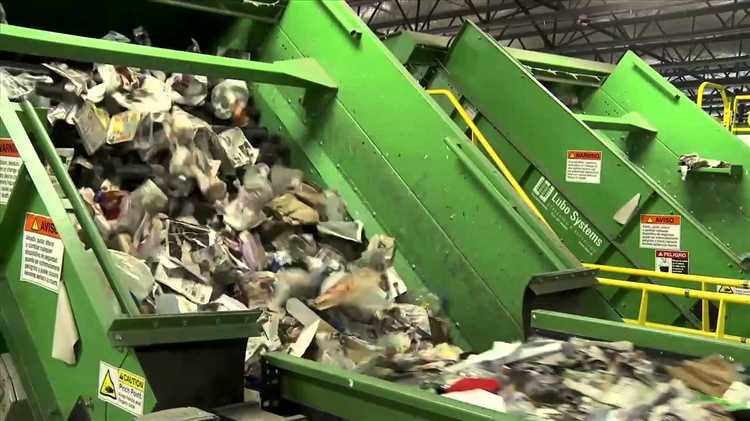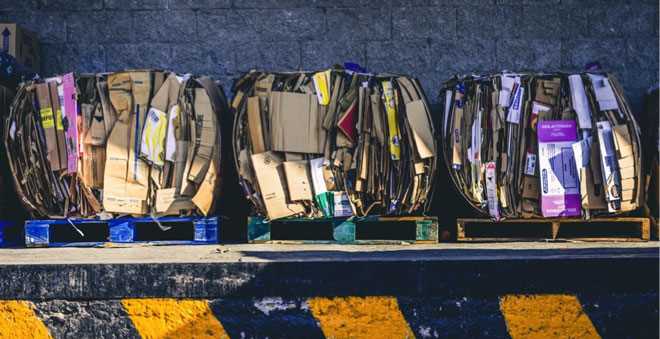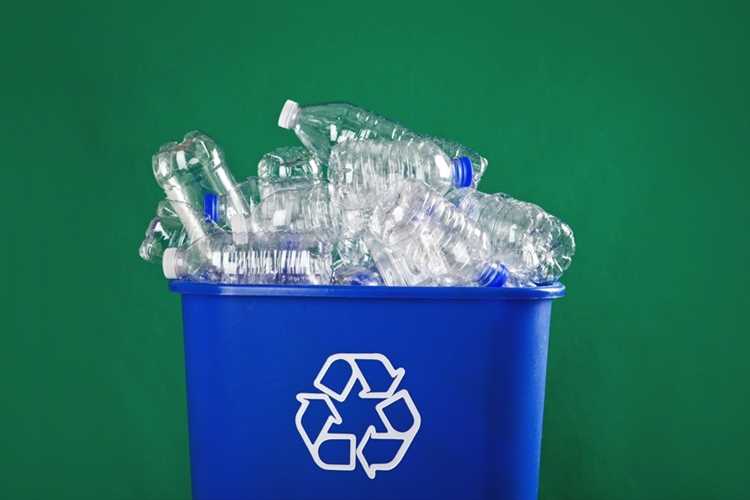Philadelphia, the largest city in Pennsylvania, has made significant strides in recent years to improve its recycling efforts. As the city continues to grow and its population increases, the need for effective waste management becomes more important than ever.
One of the key questions many residents ask is whether Philadelphia is a single stream recycling city. Single stream recycling, also known as “no sort” or “mixed recycling,” is a system that allows residents to put all recyclable materials into one bin, without the need for sorting.
The answer is yes, Philadelphia is indeed a single stream recycling city. This means that residents can conveniently place their glass, plastic, paper, and metal items all in one recycling bin, making the process easier and more efficient.
This switch to single stream recycling has brought numerous benefits to the city and its residents. Not only does it simplify the recycling process, but it also increases the overall recycling rates and reduces the amount of waste that ends up in landfills.
- What is Single Stream Recycling?
- How Does Single Stream Recycling Work?
- Collection
- Processing
- Reprocessing
- Advantages of Single Stream Recycling
- Recycling in Philadelphia
- Single Stream Recycling
- Recycling Containers
- Sustainable Initiatives
- Question-Answer:
- What is single stream recycling?
- Does Philadelphia have a single stream recycling program?
- What are the benefits of single stream recycling?
- How does single stream recycling work in Philadelphia?
- Are there any restrictions on what can be recycled in Philadelphia’s single stream recycling program?
- What is single stream recycling?
What is Single Stream Recycling?
Single stream recycling is a system where all recyclable materials, such as paper, plastics, glass, and metals, are collected together in a single container. Unlike traditional recycling methods that require individuals to separate different types of recyclables, single stream recycling simplifies the process by allowing everything to be placed in a single bin.
This method of recycling offers several advantages. First, it makes recycling more convenient for residents. With single stream recycling, there’s no need to sort or separate different materials into different bins. This encourages more people to participate in recycling programs and increases the overall recycling rates in a community.
Second, single stream recycling can also help reduce contamination. When individuals have to sort recyclables, there’s a higher chance of cross-contamination if they mistakenly place non-recyclable items in the wrong bin. By collecting all materials in one bin, the risk of contamination is reduced, making the recycling process more efficient.
Additionally, single stream recycling allows for more efficient collection and processing. Instead of having multiple trucks collecting different types of recyclables, a single truck can collect all materials at once. This leads to cost savings in terms of collection and transportation. Once collected, the materials are taken to a recycling facility where they are sorted and processed.
| Advantages of Single Stream Recycling: | Disadvantages of Single Stream Recycling: |
|---|---|
| Convenient for residents | Potential for contamination |
| Increases recycling rates | Requires more advanced sorting technology |
| Reduces collection and transportation costs | Potential for lower quality recyclable materials |
In conclusion, single stream recycling is a method that simplifies the recycling process by allowing all recyclable materials to be collected together. It offers several advantages, such as convenience for residents and increased recycling rates. However, it also has its limitations, including the potential for contamination and the need for more advanced sorting technology. Overall, single stream recycling is an efficient and effective way to promote recycling and reduce waste.
How Does Single Stream Recycling Work?
Single stream recycling, also known as “comingled” or “mixed” recycling, is a system where all recyclable materials can be placed in a single collection bin without the need for sorting them out beforehand. The convenience of single stream recycling has contributed to its growing popularity in cities like Philadelphia.
Collection
When it comes to single stream recycling, the collection process is similar to traditional recycling. Recycling trucks or bins are provided to residents and businesses, and these are used to collect the recyclable materials.
Typically, designated collection days are scheduled, and residents place their recycling bin on the curb for pickup. In some cases, the bins may be picked up by a specialized recycling truck, or they may be emptied into a separate compartment on a regular garbage truck.
Processing

Once the recyclable materials are collected, they are transported to a recycling facility, also known as a Materials Recovery Facility (MRF). At the MRF, the recyclables undergo a series of mechanical and manual processes to sort and separate them into different material types.
The first step in the process is usually a mechanical sorting process, where the recyclables pass through a series of conveyor belts, screens, and separators, which remove large items like cardboard boxes and plastic bottles from the rest of the materials.
After the initial mechanical sorting, the remaining materials are sorted manually by workers at the facility. They separate different types of materials, such as paper, plastic, glass, and metal, using various techniques like hand picking, air jets, and magnets.
Reprocessing

Once the materials are sorted and separated, they are baled or compacted and sent to reprocessing facilities where they can be turned into new products. For example, paper can be transformed into new paper products, plastic bottles can be recycled into new plastic products, and aluminum cans can be melted down and used to make new cans.
The reprocessing stage is an essential part of the recycling process, as it closes the loop and allows the materials to be reused rather than ending up in a landfill.
Overall, single stream recycling makes it easier for individuals and businesses to participate in recycling programs. By simplifying the collection and sorting process, it encourages more people to recycle, leading to higher recycling rates and reduced waste sent to landfills.
Advantages of Single Stream Recycling
Single stream recycling offers several advantages over traditional recycling methods:
Convenience: One of the main advantages of single stream recycling is its convenience for residents. With single stream recycling, all recyclable materials can be placed in one bin, eliminating the need to separate items into different containers. This makes recycling easier and more efficient for individuals and encourages greater participation in recycling programs.
Increased Recycling Rates: Single stream recycling has been shown to increase recycling rates in communities where it is implemented. The convenience of single stream recycling encourages more people to participate in recycling programs, and the simplicity of the process reduces barriers to entry. This leads to higher recycling rates and a reduction in the amount of waste going to landfills.
Cost Savings: Single stream recycling can also lead to cost savings for municipalities and waste management companies. The streamlined collection process reduces the number of collection trucks required and decreases labor costs. Additionally, the higher recycling rates that result from single stream recycling can generate revenue from the sale of recycled materials, offsetting the costs of the recycling program.
Environmental Benefits: Single stream recycling helps to conserve natural resources and reduce pollution. By diverting materials from landfills, single stream recycling reduces the need for new raw materials, conserving natural resources such as trees, water, and minerals. Recycling also reduces greenhouse gas emissions associated with the production of new materials and helps to reduce pollution from landfill sites.
Economic Opportunities: Single stream recycling can create economic opportunities by generating jobs in the recycling industry. The recycling process requires workers to sort and process materials, creating employment opportunities in recycling facilities. Additionally, the sale of recycled materials can provide revenue and stimulate economic growth in the recycling industry.
In conclusion, single stream recycling offers numerous advantages, including convenience, increased recycling rates, cost savings, environmental benefits, and economic opportunities. By implementing single stream recycling programs, cities like Philadelphia can make recycling easier and more accessible to residents, while also contributing to a more sustainable and environmentally friendly future.
Recycling in Philadelphia
Philadelphia is a city that is committed to promoting recycling and sustainable waste management practices. The city has implemented a comprehensive recycling program to help reduce waste and protect the environment.
Single Stream Recycling
Philadelphia operates on a single stream recycling system, which means that residents can place all recyclable materials into one bin. This includes paper, cardboard, plastic bottles and containers, glass bottles and jars, metal cans, and cartons. The single stream recycling system makes it convenient for residents to recycle, as there is no need to sort the materials.
Recycling Containers

The city provides each household with a recycling bin for their recyclable materials. These bins are typically blue and can be placed curbside on designated recycling collection days. It is important to ensure that the recycling bin is labeled with the recycling symbol to avoid confusion with regular trash.
Important reminder: Waste items that cannot be recycled, such as plastic bags, styrofoam, and hazardous materials, should not be placed in the recycling bin. These items can contaminate the recycling process and should be disposed of properly.
Sustainable Initiatives
Philadelphia has also implemented various sustainable initiatives to encourage recycling and waste reduction. The city offers drop-off centers for household hazardous waste, electronics, and other items that cannot be placed in the regular recycling bin. Additionally, there are community recycling events held throughout the year, providing residents with opportunities to dispose of large or unusual items.
By actively participating in the recycling program and following the guidelines set by the city, Philadelphia residents can contribute to the goal of promoting a cleaner and more sustainable environment.
Question-Answer:
What is single stream recycling?
Single stream recycling is a system where all recyclable materials, such as paper, plastic, glass, and metal, are collected and processed together in a recycling facility. The materials are then sorted and separated for recycling.
Does Philadelphia have a single stream recycling program?
Yes, Philadelphia has a single stream recycling program. The city implemented the program in 2008 to make recycling more convenient for residents. With single stream recycling, residents can place all recyclable materials in one recycling bin without the need for sorting.
What are the benefits of single stream recycling?
Single stream recycling has several benefits. It makes recycling easier and more convenient for residents, increases recycling rates, reduces contamination of recyclable materials, and improves overall efficiency in the recycling process.
How does single stream recycling work in Philadelphia?
In Philadelphia, single stream recycling works by placing all recyclable materials, including paper, plastic bottles and containers, glass bottles and jars, and metal cans, in one recycling bin. The materials are then collected by recycling trucks and taken to a recycling facility where they are sorted, processed, and sent for recycling.
Are there any restrictions on what can be recycled in Philadelphia’s single stream recycling program?
Yes, there are some restrictions on what can be recycled in Philadelphia’s single stream recycling program. Certain items, such as plastic bags, Styrofoam, and food-contaminated materials, should not be included in the recycling bin. These items can cause issues during the sorting and recycling process. It is important to check the city’s guidelines for a complete list of acceptable materials.
What is single stream recycling?
Single stream recycling is a system where all recyclable materials, such as paper, plastic, glass, and metal, are collected together in one bin instead of being sorted by the consumer. This makes recycling easier and encourages more people to participate in recycling programs.